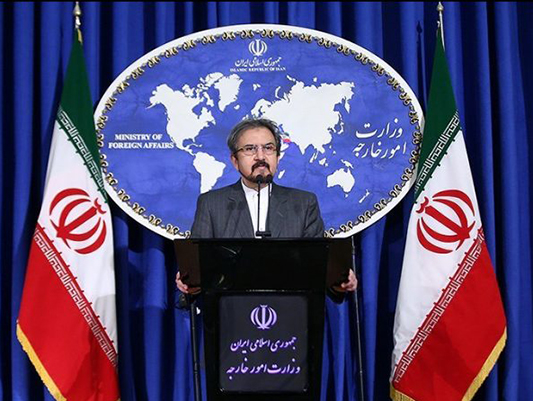Iran Rejects UN Rights Resolution as ‘Politically-Motivated’

The resolution was adopted during the 73rd session of the Third Committee of
the General Assembly with the support of governments which are themselves among
the biggest violators of human rights in their own countries and in other
states, Qassemi said in a Friday statement, condemning these countries for
backing the resolution.
"The resolution has been drafted and adopted without considering the facts on
the ground in Iran, and based on a selective, biased, and discriminatory
approach and with political intentions,” he said, saying that Tehran rejects the
resolution.
"Iran strongly condemns the instrumental use of human rights, human rights
resolutions, and international mechanisms by certain Western countries, the
occupying and infanticide Zionist regime [of Israel], and some reactionary
regional regimes,” Qassemi said, adding that these countries use human rights as
a tool to achieve their extremism and inauspicious goals.
Tehran also condemns these countries’ anarchist policies and their support for
separatist terrorists, he went on to say.
Iran believes such a trend would undermine the international community’s trust
in international mechanisms and their efficacy, he added.
Qassemi said in contrast with such measures, the country lends credit to the UN
Human Rights Council’s Universal Periodic Review (UPR), which would assess all
countries without discrimination.
"Iran’s constructive and active participation in the UPR process reflects the
Islamic Republic’s seriousness in enhancing human rights and acting on its
international commitments in the area through constructive cooperation and
dialogue-based mechanisms,” he added.
The resolution was approved Thursday in a 85-30, with 68 abstentions. This means
the resolution will most probably be approved by the 193-member world body when
it comes up for voting next month.
Speaking ahead of voting on the Canadian draft resolution, Iran’s deputy
ambassador to the UN Es’haq Al-e Habib said the countries sponsoring the measure
have done everything in their power to "suppress or derail” Iranian people’s
"century-long struggle… for the causes of human rights and democracy.”
"Orchestrating a military coup in 1953 against a democratically-elected
government, unconditionally supporting a despotic ruler for the following two
and half decades, supporting a war of aggression against Iranians during the
1980s, providing chemical weapons and reconnaissance to [former Iraqi dictator]
Saddam to target Iranians, shutting down an Iranian passenger flight murdering
all of its 290 passengers, colluding with renowned terrorist cults, and waging a
full-fledged economic war against Iranians in defiance of Security Council
resolution 2231 and the mandatory ruling of the International Court of Justice
are only a few examples to recall,” he said.
Source:IFP
















